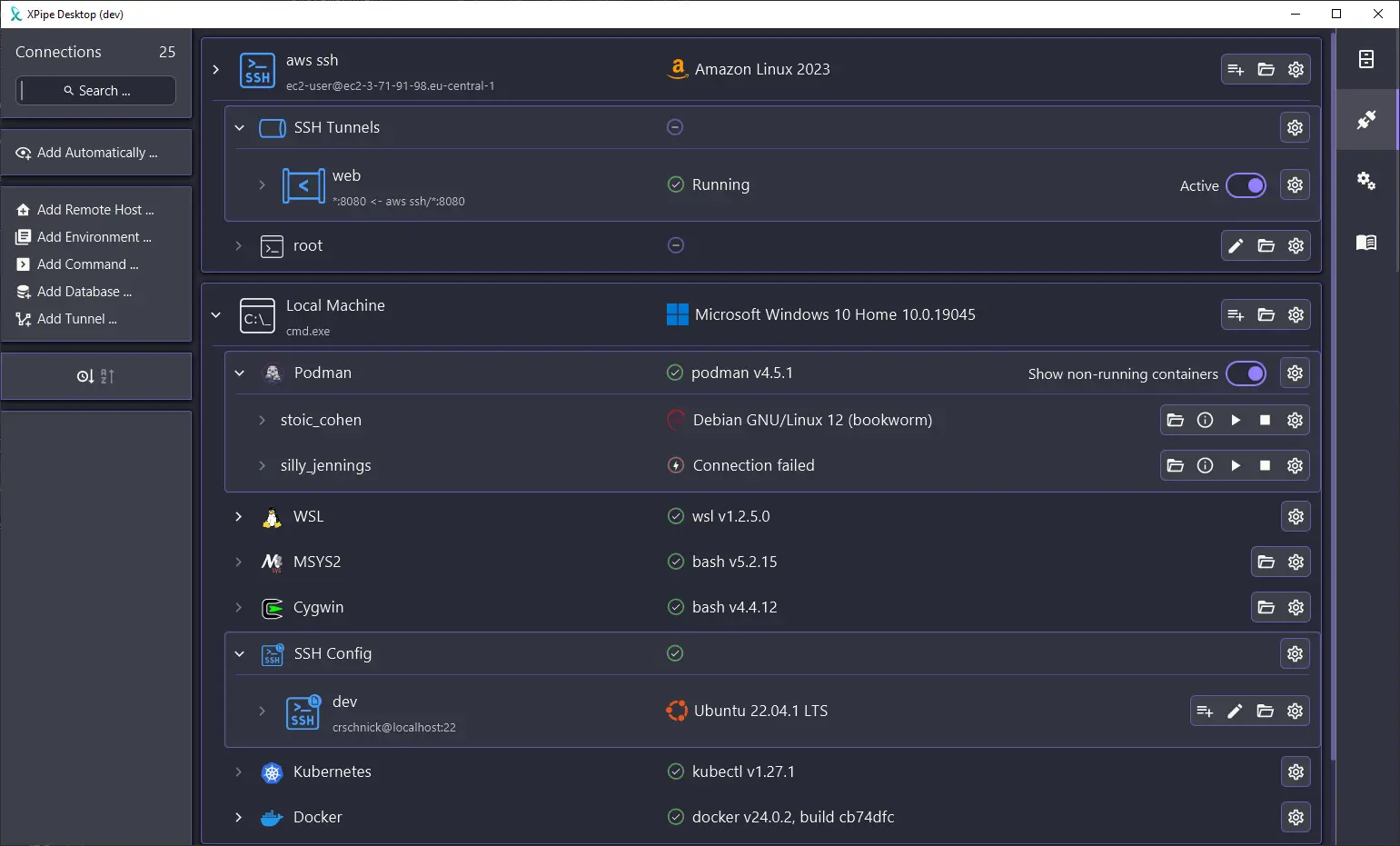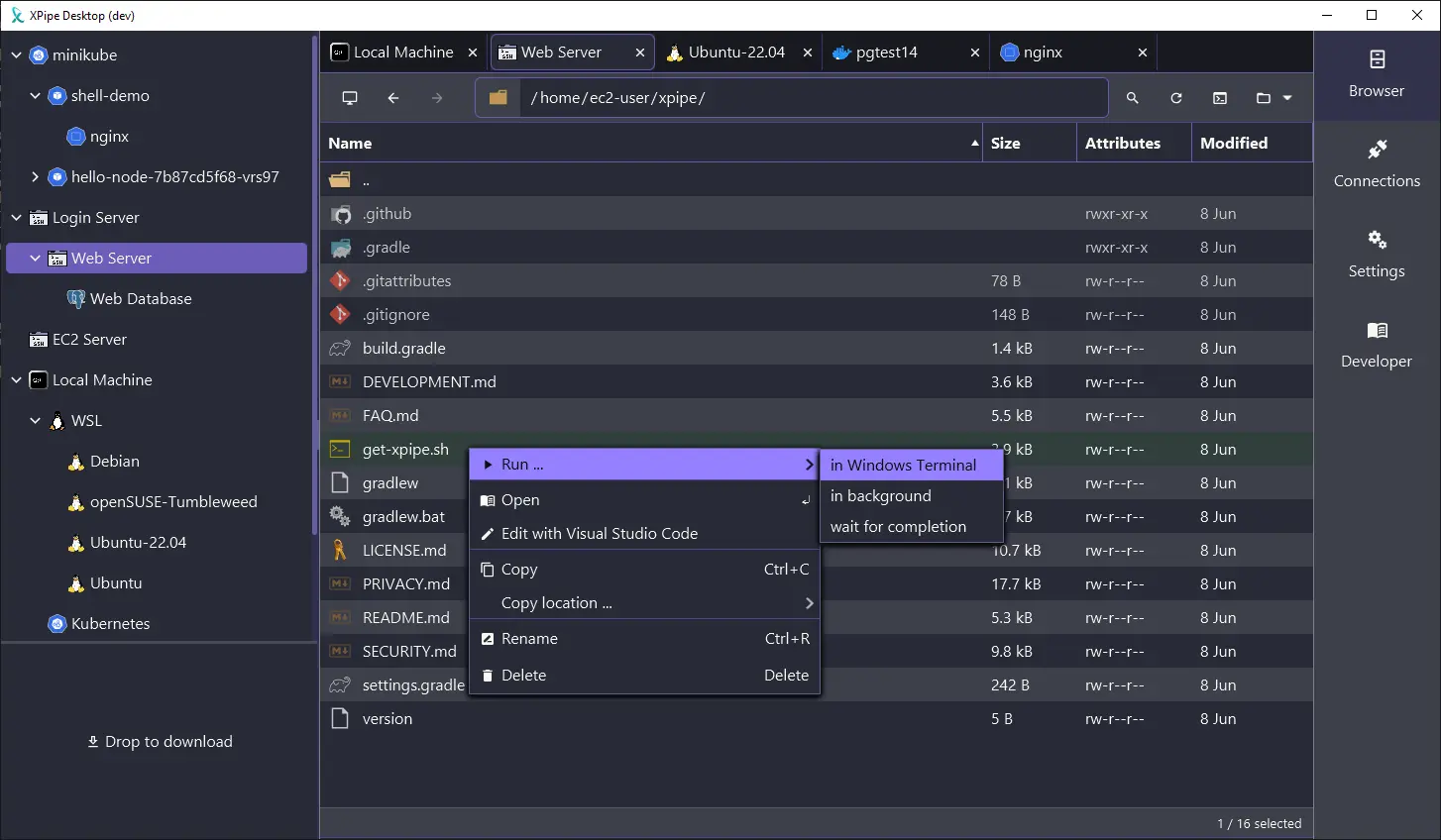Hello selfhosted community,
I just wanted to give you a short update on XPipe, a new type of shell connection hub and remote file manager that allows you to access your entire sever infrastructure from your local machine through your installed command-line programs.
Since I last posted about it here around one month ago, a lot of things have changed thanks to the community sharing a lot of feedback and reporting issues. Overall, the project is now in a much more stable state as all the accumulated issues have been fixed. Furthermore, many feature requests have been implemented. This includes for example:
- SSH tunnel support (Local, Remote, and Dynamic)
- Automatic import from your SSH configs
- Podman support
- Support for other Linux environments on Windows such as Cygwin or MSYS2
- Fish support
- Support for more terminals and editors such as Alacritty, Kitty, and more
Here are some screenshots:


Overall, there have also been a lot of changes across the board:
-
In terms of security and the handling of passwords, people did not like storing their passwords in yet another tool, so a lot of changes have been made. You can now source all required passwords either on the fly with a prompt or call the CLI of your password manager to fetch them.
-
The UI also got an overhaul and is now much more responsive and performant. Many of the icons were redone to achieve a more uniform look plus it now also displays the logo of the os/distro you connected to. It is also made to be more intuitive in many aspects.
-
In terms of availability, there are also now ARM builds available for Linux, plus a new xpipe AUR package. The available automatic installation scripts for bash and PowerShell have also been improved.
-
Of course a lot of bugs have been fixed as well and I learned a lot about in what kind of different environments people use this tool.
So if you gave this project a try a while ago or it sounds interesting to you, you can check it out on GitHub! There are still more features to come in the near future. I also appreciate any kind of feedback to guide me in the right development direction. There is also a Discord and Slack workspace for any sort of talking, now with a small community present.
Enjoy!

It verifies whether it can actually connect to a system prior mainly because you have to do it anyways at one point and also to query system information to for example display the operating system name and logos. What exactly do you mean by on the fly here? Maybe I can improve the flow for use cases like yours, I personally have never dealt with keys in password managers.